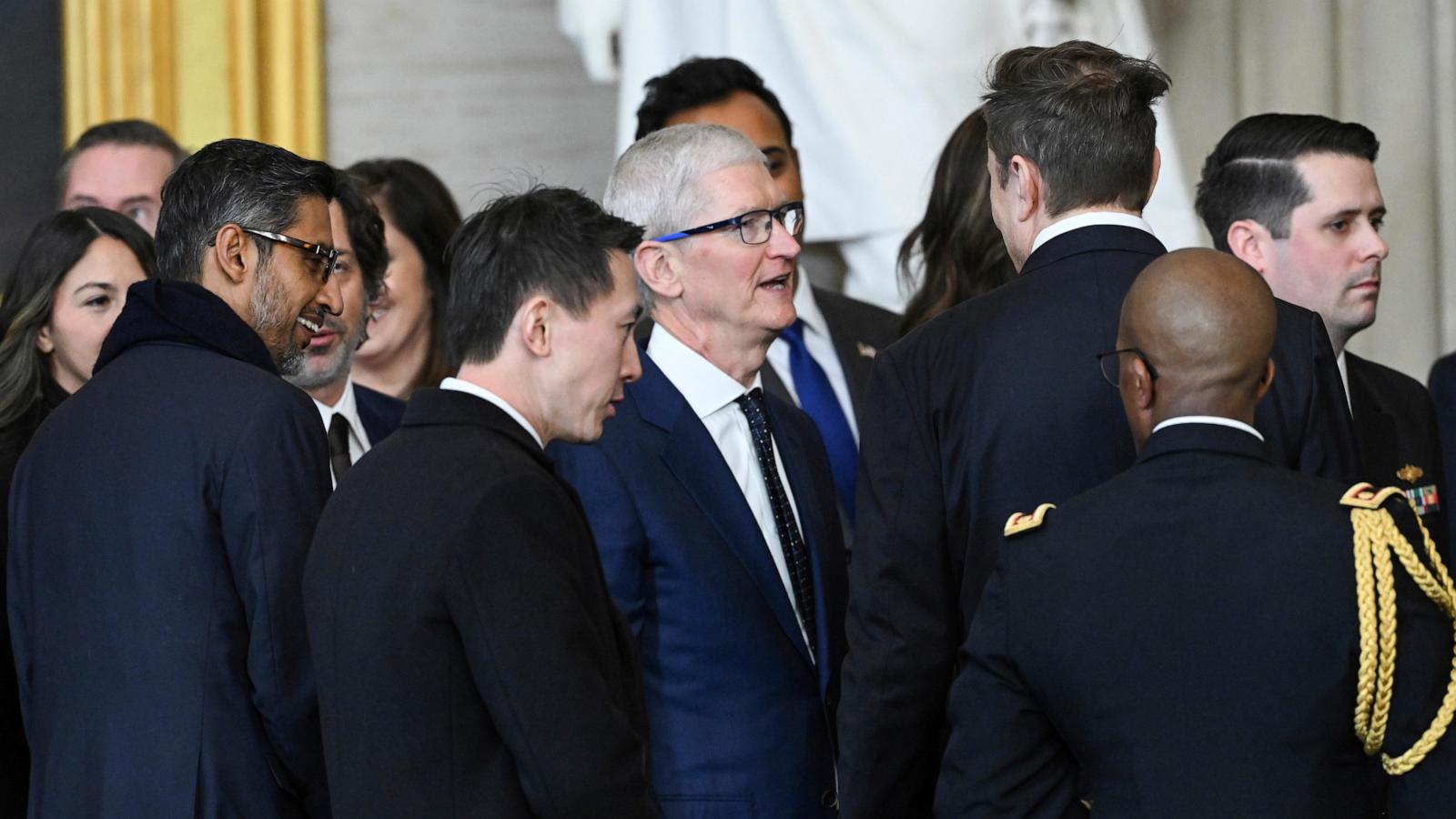
TikTok's 75-Day Reprieve: A Dance With Destiny
TikTok's Perilous Dance: A 75-Day Reprieve and the Looming Shadow of a Ban
Get ready for a rollercoaster ride! The wildly popular video-sharing app, TikTok, has been granted a temporary reprieve from a potential US ban, but the drama is far from over. President Trump's last-minute executive order buys the app 75 days, but the underlying issues of national security and the threat of a complete shutdown remain. This nail-biting situation has everyone from business leaders to everyday users glued to their screens. So buckle up, because we're about to dive deep into the whirlwind that is TikTok's fight for survival.
The TikTok Tightrope: A Balancing Act Between Popularity and Politics
TikTok's phenomenal success is undeniable. Boasting a staggering 170 million US users and millions more worldwide, it's become a cultural phenomenon, shaping trends and influencing everything from music to politics. The app’s clever algorithm personalizes the user's viewing experience, and the short video format is endlessly engaging. But this explosive growth hasn't come without a hefty price. The app's Chinese ownership, ByteDance, has sparked intense debate over data security and potential national security risks. The potential for the Chinese government's access to user data looms over all decisions and debates, as has already impacted China-US relationships in other industries and sectors.
The National Security Concerns: A Deep Dive into the Debate
Concerns regarding TikTok are not unfounded. Critics argue that ByteDance, being a Chinese company, could potentially be compelled by the Chinese government to share user data or even manipulate algorithms for political purposes. This has led to intense scrutiny from US lawmakers who consider TikTok as more than just an app but rather as a potential vector for data espionage, influence operations, and manipulation that could target the United States, other nations, or both. While TikTok has consistently denied such allegations, many remain unconvinced due to previous scandals, including the leak of users' personal information in 2022.
Balancing Act: Trump’s Intervention and the Legal Maze
Trump's unexpected executive order adds another layer of complexity to this already intricate situation. His decision temporarily halts the ban, giving ByteDance additional time to find a US buyer or explore other solutions, offering TikTok users some level of relief but also uncertainty. This sudden move may well result in a judicial battle, causing more friction in Sino-US relationships, and potentially setting a precedent for political influence over seemingly independent sectors, including the tech and information spheres.
The Future of TikTok: Uncertainty and Potential Outcomes
The next 75 days will be critical. While some consider Trump's order to be a bold but unprecedented step, others are highly skeptical, citing potential conflict of interest, financial motives, and other factors influencing Trump’s decisions. While the legal ramifications are yet to be fully explored, one thing remains: The fate of TikTok hangs precariously in the balance, with a multitude of potential outcomes, including:
A Potential Sale: The Quest for American Ownership
A potential sale to a US company remains on the table, perhaps not to one buyer but rather as a series of partnerships or mergers which dilute or transfer control to US entities. This would involve considerable negotiations and due diligence, addressing concerns over data security and the transfer of sensitive technology. Finding a buyer with sufficient financial might and international reach that meets every criteria seems unlikely. While previous bids to purchase TikTok fell short, Trump's latest intervention may influence the outcome of a potential transaction.
A Continued Fight: Legal Challenges and Regulatory Hurdles
With the intervention of former President Trump, the debate has again reignited regarding TikTok's role in the future of the American market. Without a speedy transaction of control, litigation will almost certainly ensue. The path forward likely will depend on judicial rulings concerning regulatory precedence. It remains to be seen whether TikTok might take on new international legal cases, such as taking claims against the federal government of the United States, various States within the United States, various non-US organizations such as social media platforms within China, etc. to support continued operation of their various arms globally.
The Broader Implications: A Clash of Geopolitics and Business
The TikTok saga is not just about a single app; it's a microcosm of the larger geopolitical struggle between the US and China, intertwining business interests, technological advancements, and security concerns in unprecedented ways. The app's ongoing predicament illustrates a delicate balance, where individual liberties are contrasted with national interests and where political calculations take priority over free markets. Moreover, the potential ramifications of Trump’s executive orders regarding the various players could severely alter China-US relations.
The Impact on US-China Relations: Navigating a Complex Dynamic
Beyond the legal challenges and business calculations, there’s another paramount question: how this dispute between the United States and China affects the already complex relations between the two countries. Such interventions, like Trump's executive orders, impact broader trade, foreign policy, and bilateral relations between the two powers, far beyond merely affecting ByteDance.
Take Away Points:
- TikTok's fate hangs in the balance, with a 75-day reprieve offering a temporary respite but not resolving the core issues.
- National security concerns regarding data privacy and potential manipulation remain central to the debate.
- The legal battles ahead will be intense, potentially involving a wide array of stakeholders and testing the limits of presidential power.
- The TikTok situation exposes deeper tensions between the US and China, showcasing a global conflict between business, data security, national interests, and the technological sphere.








